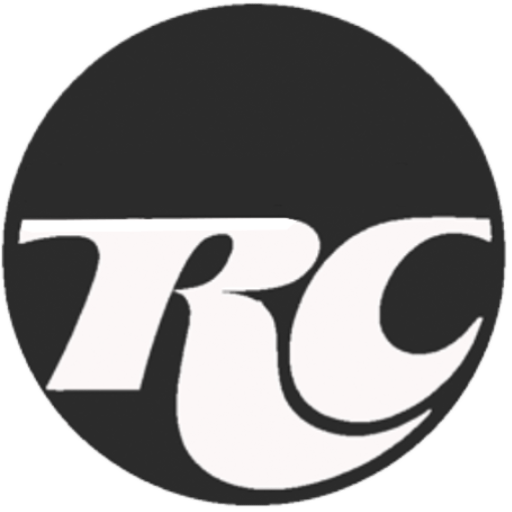Full-stack marketing was a term first coined a few years back referring to someone that has a full range of digital marketing skills. Not to be mistaken as a digital marketing specialist who specializes in one specific field like SEO, PPC or marketing automation.
The full-stack marketer fills an all-in-one type of digital customer acquisition role for a small to medium size business (SMB) or startup. They have expertise in a variety of marketing tactics from frontend web development to customer engagement strategies. Wearing multiple hats they are creative-driven, but also data-influenced and proficient in Search Engine Optimization (SEO), copywriting, paid advertising and many other digital growth tactics.
The full-stack marketer is cut from a different cloth than the average marketer. Many of them have run their own businesses or have spent years building marketing strategies, giving them the opportunity to sharpen multiple skills through experience and intuition.
They can design a flyer and send it to be picked up at Stapels in the morning. Then they will code a new landing page while setting up multiple design proofs for a paid ad by lunch. They might update the text in a pitch deck and work in Adobe Illustrator to fix a slide that afternoon, then have dinner in the evening with their CEO and a Marketing Director from another firm. The next day will be completely different.
The term was borrowed from the tech-world which referred to a developer fluent in a full-stack of programming languages. They are like a general practitioner in the medical field who has a vast understanding of medical procedures over a specialist who focuses on one field in-particular.
At times a business needs a specialist, someone to take a deep dive into a specific segment. Other times they need a generalist, or someone with a full-stack of skills. It all depends on the size and stage that the business is in.
A full-stack marketer does have the ability to manage and led various digital tactics, but in a more fundamental aspect, they are able to translate business objectives into actionable strategies.
Francisco Kemeny, Quora
I remember when I was living in small beach town in Central America we had one doctor in town who was a general practitioner. He could diagnose a vast range of ailments from ear infections to common viruses. He was a perfect fit for this small town to cover the minor injuries from the locals and the tourists.
One day a tourist drove an ATV off of a trail and into a 20ft ravine. They were badly injured and at risk of losing a limb and needed to get the hospital right away by helicopter. Our town doctor was only able to do so much in this case and they needed an orthopedic surgeon to set the bone.
It would have been nice to have a specialist in town for this one instance, but not for all the other times. We were like a small business and needed someone with a full-stack of skills for our day to day operations.
When a Full-stack marketer is not a good fit
Larger organizations have the size and budget that allows them to build marketing teams with specialists in every segment. That is not often the case with startups that are limited on funds and talent. If they take the same approach they risk not establishing an audience in time.
These digital marketers do best in small companies and startups where they are needed in every aspect of marketing. They are used to handling a team, and can go solo – so the opportunities at a smaller company are better for them. – Rajesh Shukla, Quora
Specialists are good at what they do, and when it comes to marketing, like medicine, they have their time and place. Most entrepreneurs will agree that at the beginning you need a generalist, or someone that can wear many hats.
If you hire an SEO specialist and you need someone to do an email campaign or run a PPC ad you might get amateur work at best. On the same note, if you hire a social media specialist, you might end up missing out when it comes to updating the website or landing page because your developer is backed up. That is why a marketer with a full wheelhouse of skills becomes one of the most important roles that a startup should fill.
Why a Full-Stack marketer is a good fit for a SMB or Startup.
The list of areas to address as a full-stack marketer in a SMB or Startup is extensive to say the least. Here are 10 important skills and areas where a full-stack marketer can grow your business. Plus one extra when you get to the bottom of the list.
1. Brand Strategy – A full-stack marketer knows how to position a brand and its messaging with target audiences. They are data-driven and strategic but also able to get their hands dirty and build from the ground up. They often end up setting up marketing strategies and tactics as well as execute them.
2. Graphic Design – Many full-stack marketers have come from or gained UI, UX experience and can wireframe and design websites and apps. They are proficient in programs like Adobe CS6, Sketch, Balsamiq, and Invision. This is is important because startups need someone that can communicate their brand message in all types of mediums including pitch desks, brochures and digital ads.
3. Front End Development – Full-stack marketers also have HTML, JAVA, CSS, PHP, and WordPress skills that are useful for creating websites, blogging and making landing pages on the fly.
4. Paid Search – Most full-stack marketers are paid search specialists real time bidding (RTB) focused but not limited to RTB experience. They also manage paid social ads, retargeting, video ads and much more.
5. Email Marketing – E-mail is still one of the best acquisition channels today. Full-stack marketers effectively use the power of email by creating and optimizing an email that gets delivered, read, and achieve desired results.
6. Video Marketing – Video will continue to grow as a marketing channel as more people shift more of their attention online. Full-stack marketers have set up video strategies, script writing, editing and publishing across multiple channels.
7. Affiliate Marketing – Affiliate marketers have got a bad wrap over the years because of a few bad seeds. We should be careful not to through out the good with the bad, especially since affiliate marketing is now considered “influencer marketing”. Some affiliate marketers are creative marketers as well because they tend to just make things happen by experimenting with new strategies and tactics. Full-stack marketers know how to build affiliate campaigns and how to manage affiliate marketers on different programs.
8. Content Marketing – Content marketing covers different aspects of your marketing campaign and strategy. From social media, to blogging, to PR. Content brings utility to your readers and helps build brand awareness, likability, trust and more. Full-stack marketers are good copywriters because they know that writing great headlines is one of the easiest ways to generate more click throughs and eventually more conversions. They are also good at story telling and presenting it in long form for blogs or white papers or in short bites for social media or display ads.
9. Customer Service and Customer Engagement Strategy – Full-stack marketers have experience in framing, implementing and scaling customer engagement workflows as well as build a solid customer support base.
10. Analytics & Reporting – Organic search (SEO) is still the top growth channel in most cases today. Full-stack marketers know it takes the most time and effort, but executed well, it brings the most long term value. They have proficient skills in MSOFFICE, Analytics and have worked with almost every metric and analytics app out there during testing phases.
* Extra – Startup Marketing – Startup marketing is a different beast from typical marketing. It’s very metrics driven and requires a lot of testing through different channels. It’s also a different mindset because there’s a finite amount of time to hit numbers (unlike a big company where there’s an abundance of runway). Most startups need full stack marketers to help with growth and there unfortunately aren’t many around today. You’ll also learn about customer development, product market fit and driving growth with little to no budget sometimes.
This just scratches the surface of what a full-stack marketer brings to the table for a SMB or startup.
A full-stack marketer should be the first non-tech hire for a startup that needs to get from 0-90. Their stack of skills will help build a frame work, establish early traction, and allow you to grow rapidly the first couple of years. It should be noted that full-stack marketers are rarely the ones to take business from 90-100. ~Shannelle Mullin from Onboardly.
As a business grows it will eventually need specialist to take over on the framework that they built their early success on. This tends to work out for most full-stack marketers that do not move into a CMO role because they generally enjoy the pace of the early growing stages in a startup.
If you would like to find out if a full-stack marketer would be beneficial for your business, contact me for a free consultation.
Photo by Damian Zaleski on Unsplash





